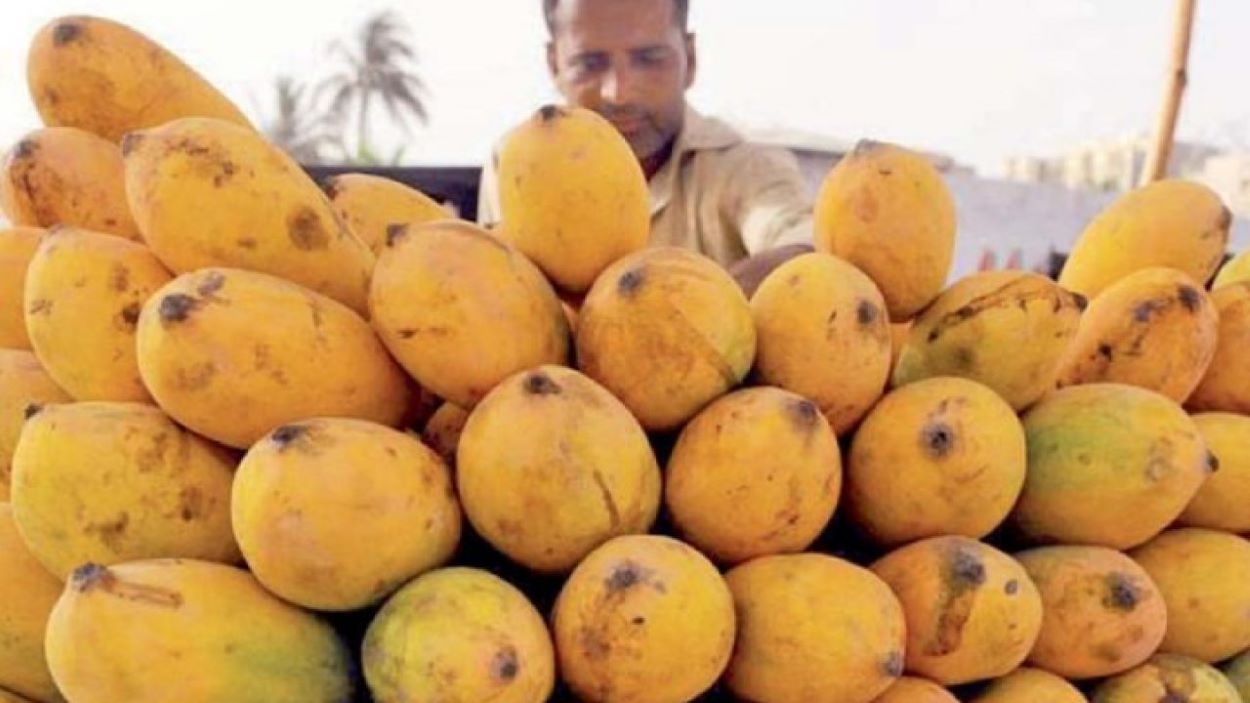Climate change has heavily impacted mango yields for the third consecutive year. Exporters and horticulture experts warned on Thursday that overall production might fall by 600,000 metric tonnes this year.
Punjab and Sindh are the main producers of mangoes. They share 70% and 29% of the 1.8 million metric tonnes of national produce, respectively. The remaining 1% comes from Khyber-Pakhtunkhwa (K-P).
Poor weather conditions might reduce Punjab’s yield by 35-40% and Sindh’s by less than 20%.
The All Pakistan Fruit and Vegetable Exporters Association (APFVEA) has set an export target of 100,000 metric tonnes for the current season, which begins on May 20, APFVEA Patron-in-Chief Waheed Ahmed said on Thursday.
This season will focus on the value-added markets of China, America, Turkey, and Japan. Iran, Afghanistan, and Central Asian states will also play important roles in achieving the mango export target.
Last season, the export target was 125,000 metric tonnes, but only 100,000 were exported. This year, the target is reduced to 100,000 metric tonnes. Experts suggest that achieving this target would generate $90 million in foreign exchange.
The value-added sector, including mango processing, packaging, and warehousing, is worth more than Rs100 billion and employs millions. However, the sector faces challenges like rising electricity, gas, transportation, garden maintenance, pesticides, and water management costs.
Progressive farmers and growers from Sindh criticized the federal and provincial governments and their organizations. They were not focusing on serious research and development work.
Sindh Chamber of Agriculture (SCA) Senior Vice President Nabi Bux Sathio, Farmer Organizations Council Sindh Chairman Jawaid Junejo, and Small Growers’ Organization Sindh Agriculture Research Council (SARC) President Ali Pal stressed the need for research-based solutions.
They called for the development of new varieties and seeds and the adoption of agri-tech. They also urged holding awareness programs so growers and progressive farmers could get updated information about climate change, new crop patterns, and other issues.
To enhance mango yields and exports, they urged government institutions to develop new varieties suited to changing weather conditions. They also urged the government to ensure the supply of suitable pesticides and launch prevention programs to protect agriculture.






